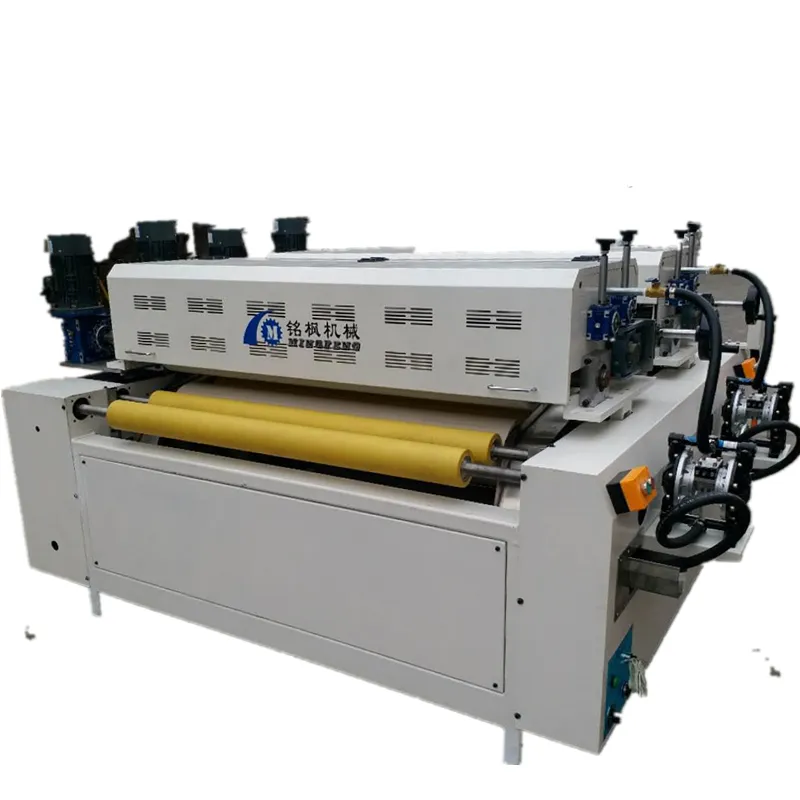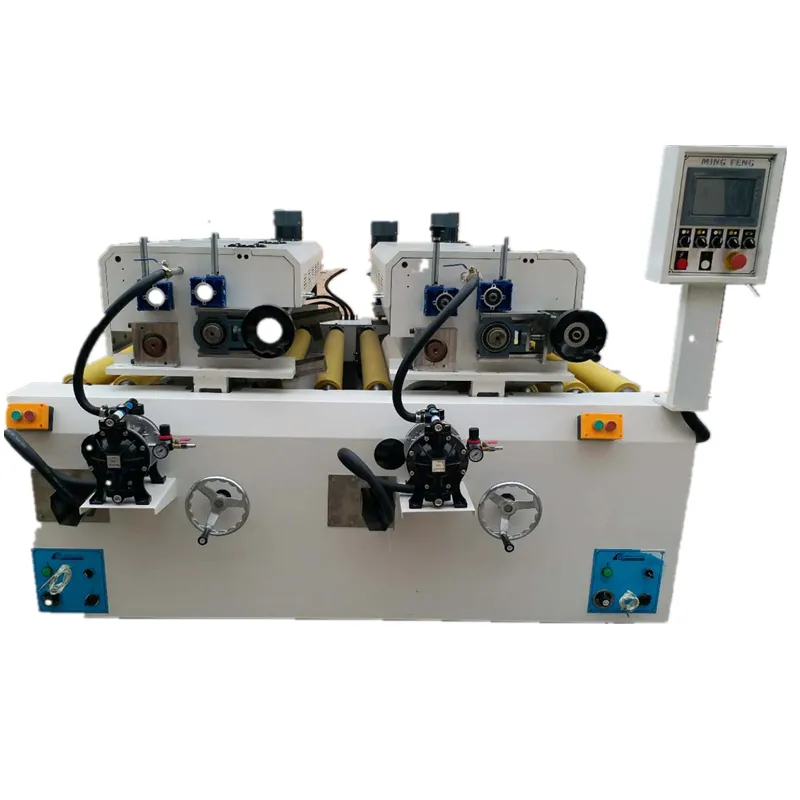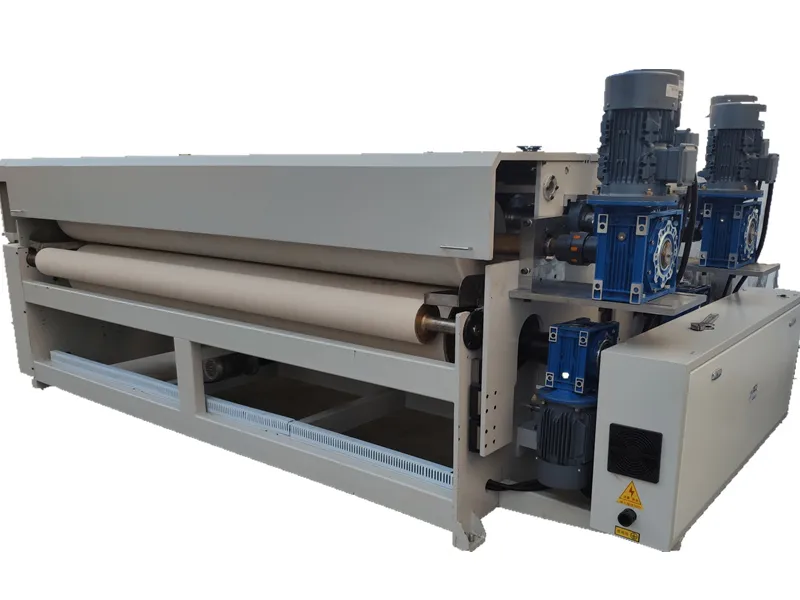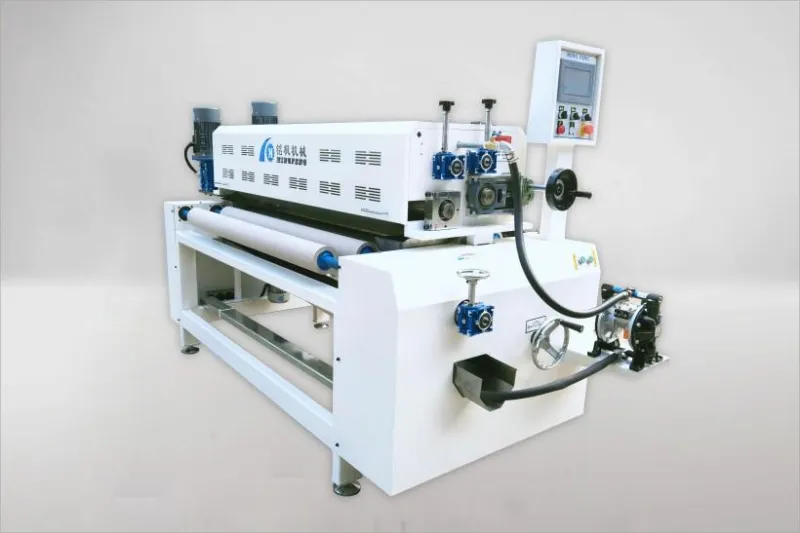In modern manufacturing, surface engineering is a critical process, impacting not only a product's appearance but also its functionality, stability, and market competitiveness. A roller coating machine is a core coating device widely used to evenly apply various coatings to surfaces of diverse materials, imparting protective, functional, or decorative properties.
However, roller coating machines are not suitable for all companies. So, who really needs one?
This article will analyze from multiple perspectives, delving into the industries and user groups most in need of this type of equipment and explaining in detail the key role roller coating machines play in these areas.

What are the advantages of roller coating machines?
A roller coating machine uses a rotating roller to apply liquid coating to a substrate. Its key advantages include:
1. High coating uniformity, suitable for large-area material processing;
2. High speed, suitable for continuous, high-volume production;
3. Compatible with a variety of substrates and coating types;
4. Controllable coating thickness with high repeatability;
5. Integrated with drying, curing, laminating, and slitting processes.
Based on these features, roller coating machines primarily serve industries with high surface treatment requirements, particularly those seeking improved product functionality, batch consistency, and production efficiency.

Who needs roller coating machines most? - By industry
1. Packaging and printing industry
In the manufacturing of packaging materials, whether plastic film, paper, aluminum foil, or composite film, the surface often requires coating to achieve barrier, moisture-proof, oil-proof, scratch-resistant, and heat-sealable properties.
Roller coating machines are primarily used in this industry for the following applications:
· Coating films such as BOPP and PET to improve their printability;
· Applying oil and moisture-proof treatment to food packaging paper;
· Applying pressure-sensitive adhesive or hot-melt adhesive to label materials;
· Applying special effects such as varnish, scratch resistance, matte finish, and UV coating.
Target customers: Film manufacturers, packaging composite materials manufacturers, and printing consumables manufacturers.
2. Electronics and Electrical Industry
The electronics industry has a high demand for functional coatings, particularly in flexible circuit boards, display materials, battery separators, and insulating materials. Roller coating machines are widely used to apply functional coatings such as:
· Conductive coatings (such as ITO films and electrode films);
· Flame-retardant coatings;
· Insulating coatings;
· Battery electrode coating (positive and negative electrode material slurries);
· Surface treatment of adhesive films, protective films, and heat-sensitive films.
Target customers: Lithium battery manufacturers, FPC manufacturers, electronic functional film manufacturers, OLED and LCD module manufacturers, etc.
3. Building Decoration Materials Industry
In the building decoration industry, many boards, panels, and coils require coatings to enhance their decorative effects and durability. Examples include:
· Wood grain decorative paper coatings;
· Wear-resistant coatings on fireproof boards and decorative panels;
· UV-curable floor coatings;
· UV-resistant and rust-proof coatings on metal sheets (such as aluminum-plastic panels and color-coated steel sheets);
· Protective films on stone-plastic panels and integrated wall panels.
Roller coating machines can achieve these functions through high-precision roller coating, maintaining consistent decorative quality.
Target customers: Flooring manufacturers, decorative panel manufacturers, PVC wall panel manufacturers, and furniture panel manufacturers.
4. Automotive and Transportation Manufacturing Industry
In the automotive and transportation equipment industries, roller coating machines are primarily used for the surface treatment of the following materials:
· Decorative coatings for automotive interior films;
· Functional coatings for heat-reflective films and explosion-proof membranes;
· Adhesive coatings for noise-damping materials;
· Surface treatment for door panels and sun visors.
This industry places extremely high demands on coating consistency, weather resistance, and functionality, making the precision control capabilities of roller coating equipment particularly important.
Target customers: Automotive interior material manufacturers, automotive film manufacturers, and automotive composite material suppliers.

5. Optical and Display Industry
The production of optical materials places extremely stringent coating requirements on the coating process, requiring coating thickness to be controlled in the micron or even nanometer range. Roller coating machines play a vital role in the following applications:
· Hardening and anti-reflective coatings for PET optical films;
· Functional processing for backlight films and diffuser films;
· Conductive coating for touch panels;
· Coating of polarizer protective films.
Because these products are extremely sensitive to surface defects, the use of high-precision roller coating is the industry standard.
Target customers: LCD manufacturers, optical film producers, and mobile phone panel accessory suppliers.
6. Textile and Nonwoven Materials Industry
Nonwoven fabrics, industrial fabrics, and functional textiles often require a functional coating to enhance their performance or achieve effects such as water repellency, oil repellency, flame retardancy, and antibacterial properties.
Roller coating machines are commonly used in the following applications:
· Adhesive treatment for non-woven fabrics;
· Surface treatment of medical protective materials;
· Anti-slip coating for carpet backing;
· Film coating for industrial filter fabrics;
· Conductive and anti-static coating for functional clothing fabrics.
Target customers: Functional textile manufacturers, industrial fabric processing plants, and non-woven fabric manufacturers.
7. Label and Adhesive Materials Industry
Coating demand in this industry focuses on functional adhesives and coatings:
· Adhesive backing for adhesive tapes;
· Surface treatment for label paper;
· Adhesive coating for double-sided tapes, protective films, release films, and transfer films;
· Thermosensitive coating and anti-counterfeiting coating.
Roller coating machines achieve high-speed and high-precision coating and can be used in conjunction with hot air, infrared, or UV curing systems to complete the entire coating and curing process.
Target customers: Tape manufacturers, label material manufacturers, release material manufacturers, and protective film manufacturers.
8. Energy and Environmental Materials Industry
Roller coating machines also have important applications in the new energy industry and environmentally friendly materials, such as:
· Functional coatings for battery separators;
· Moisture barriers for solar backsheets;
· Impermeable coatings for garbage bags or biodegradable plastics;
· Surface carrier coatings for adsorbent materials (such as activated carbon cloth and photocatalytic cloth);
· Precision coating of filter membranes.
Target customers: New energy material manufacturers, functional film companies, and membrane separation material manufacturers.

From a user perspective: Who really needs a roller coating machine?
1. Companies with strict requirements for coating uniformity
Manufacturers of optical films, electronic materials, label coatings, and printed pre-coated films, for example, demand extremely high coating thickness uniformity per square meter of product surface. Roller coating machines, with their stable mechanical rotation and metering control systems, are the ideal choice.
2. Manufacturers pursuing high-volume continuous production
Roller coating machines are suitable for high-speed operation and can operate continuously for hours or even around the clock, meeting the processing requirements of large orders and short delivery times. Therefore, this type of continuous coating equipment is often the preferred choice for large-scale material manufacturers.
3. Factories with diverse materials and varying coating properties
Roller coating machines can accommodate a variety of coatings (UV, water-based, oil-based, etc.) and substrates (film, paper, metal), making them particularly valuable for companies whose production lines frequently change orders.
4. Processing lines requiring a high degree of automation
Modern roller coating machines, equipped with systems such as tension control, temperature control, PLC logic control, and online thickness monitoring, enable high-precision automated coating, minimizing manual intervention and are a key component of intelligent production lines.
Who Roller Coating Machines Are Suitable For
—As mentioned above, roller coating machines are not general-purpose equipment. They primarily serve industries and companies with high requirements for coating quality, processing efficiency, and surface functionality. Industries ranging from packaging and printing, electronics and optoelectronics, architectural decoration, to new energy materials, all demonstrate strong demand for roller coating machines.
Essentially, the answer to the question of who needs a roller coating machine can be summarized as follows: Any industrial user who requires efficient, stable, and uniform functional or protective coatings on large substrates cannot do without this core equipment.
How does XMF Machinery support after sales and service?
As a global supplier and manufacturer, XMF Machinery prides itself on comprehensive after-sales service. Once you buy or purchase our machines, we provide installation, commissioning, training, and troubleshooting support. We also offer spare parts, maintenance, and assistance with adjusting coating formulas for different materials.
We provide quotes for spare parts, high-quality technical support, wholesale consumables if needed, and promotions on replacement modules. Our global sales footprint ensures customers in multiple regions enjoy prompt, reliable service.
